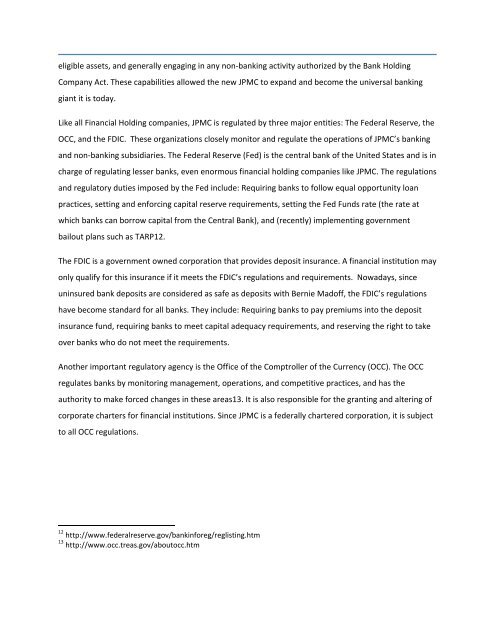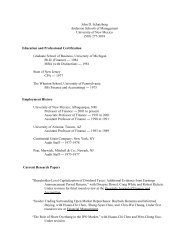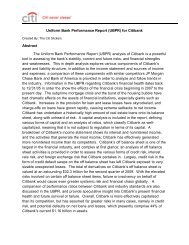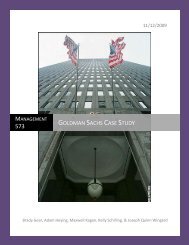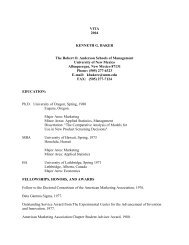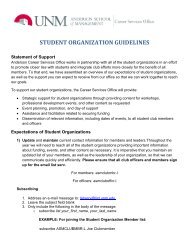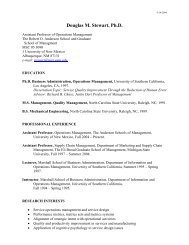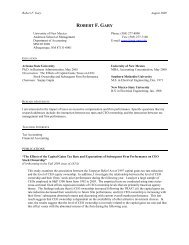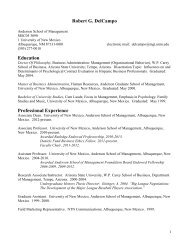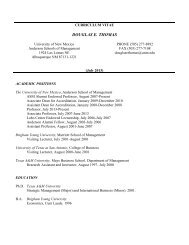Uniform Bank Performance Report - Anderson School of Management
Uniform Bank Performance Report - Anderson School of Management
Uniform Bank Performance Report - Anderson School of Management
Create successful ePaper yourself
Turn your PDF publications into a flip-book with our unique Google optimized e-Paper software.
eligible assets, and generally engaging in any non‐banking activity authorized by the <strong>Bank</strong> Holding<br />
Company Act. These capabilities allowed the new JPMC to expand and become the universal banking<br />
giant it is today.<br />
Like all Financial Holding companies, JPMC is regulated by three major entities: The Federal Reserve, the<br />
OCC, and the FDIC. These organizations closely monitor and regulate the operations <strong>of</strong> JPMC’s banking<br />
and non‐banking subsidiaries. The Federal Reserve (Fed) is the central bank <strong>of</strong> the United States and is in<br />
charge <strong>of</strong> regulating lesser banks, even enormous financial holding companies like JPMC. The regulations<br />
and regulatory duties imposed by the Fed include: Requiring banks to follow equal opportunity loan<br />
practices, setting and enforcing capital reserve requirements, setting the Fed Funds rate (the rate at<br />
which banks can borrow capital from the Central <strong>Bank</strong>), and (recently) implementing government<br />
bailout plans such as TARP12.<br />
The FDIC is a government owned corporation that provides deposit insurance. A financial institution may<br />
only qualify for this insurance if it meets the FDIC’s regulations and requirements. Nowadays, since<br />
uninsured bank deposits are considered as safe as deposits with Bernie Mad<strong>of</strong>f, the FDIC’s regulations<br />
have become standard for all banks. They include: Requiring banks to pay premiums into the deposit<br />
insurance fund, requiring banks to meet capital adequacy requirements, and reserving the right to take<br />
over banks who do not meet the requirements.<br />
Another important regulatory agency is the Office <strong>of</strong> the Comptroller <strong>of</strong> the Currency (OCC). The OCC<br />
regulates banks by monitoring management, operations, and competitive practices, and has the<br />
authority to make forced changes in these areas13. It is also responsible for the granting and altering <strong>of</strong><br />
corporate charters for financial institutions. Since JPMC is a federally chartered corporation, it is subject<br />
to all OCC regulations.<br />
12 http://www.federalreserve.gov/bankinforeg/reglisting.htm<br />
13 http://www.occ.treas.gov/aboutocc.htm


